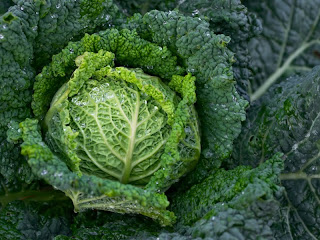This is a group of plants belonging to the Mustard family, Cruciferae. It includes vegetables that are commonly grown and known as Broccoli, Brussels Sprouts, Cabbage, Cauliflower, Collards, Kale, Kohlrabi, Mustard, Rape, Rutabaga and Turnip. Many can be grown for their ornamental leaves.
All fruits and vegetables are valuable sources of foods that fight disease. They are naturally low in fat, cholesterol, sodium and calories, but rich in potassium, fiber, folic acid, beta-carotene and vitamins C and K. In fact, it is estimated that cancer rates 20 percent would decrease if Canadians are five to 10 servings of fruits and vegetables every day eating. And it is the brassica family that the highest levels of disease-fighting substances per serving contains.
The brassica family of vegetables that broccoli, cabbage, kale, cauliflower and Brussels sprouts, is a of your most powerful weapons in warding off many common diseases such as cancer, heart disease, diabetes and hypertension.
Brassica Oleracea
Brassica Benefits for health :
- Preventing heart disease
Vitamin E, beta-carotene, and vitamin C on the greens very well to prevent cholesterol and heart disease. These three substances are very useful to prevent oxidation of LDL cholesterol. Mustard also contains niacin which serves to minimize ateroskerosis process and ultimately reduce the likelihood of heart attacks. - Prevents anemia
Folic acid functions in the process is key to the formation of nucleoprotein synthesis and grain production of normal red blood in the bone marrow. - Preventing osteoporosis
From k viatamin content in Indian mustard can regulate bone protein and calcium in the bones. - Keeping the cornea to keep it healthy
With the existence of vitamin A makes will be issued keratin epithelial cells, ie proteins that are insoluble in water and not mucus. - Healing the wounds and body resistance against infections and stress
Because it contains Vitamin C in cabbage is almost equivalent to oranges. Consumption of 1 cup mustard greens enough to meet 59 percent of the body's need for vitamin C per day. - Preventing diabetes militus
Calcium is one of the most important minerals needed by the body that can lower cholesterol and blood sugar. - Can protect the skin.
The content of vitamin E on the greens can serve as a major antioxidant in cells. The George Mateljan Foundation (2006) classifies the mustard in the category of excellence as a source of vitamin E. Average requirement of vitamin E to reach 10-12 mg / day. - Kinds of cancer deterrent
Presence of indole and isothiocyanates serves to reduce the potential for cancer because of the ability of the two components that regulate the functioning of enzymes to detoxify the liver. From some of the results of epidemiological studies, Park and Pezzuto (2002) reported that consumption of vegetables from the Brassica genus (including cabbage) may reduce the risk of various cancers, namely breast, prostate, kidneys, colon, bladder, and lung cancer, prevent cancer bladder.
While sulforan which of the publication in the Journal of Nutrition in 2004 showed that a lot sulforafan content contained in Brassica group is very effective in preventing breast cancer cell growth. - Preventing mumps
goitrogen can inhibit thyroid function. cause goiter goiter
However, please note that oxalate has a disruption of the kidneys should avoid excessive consumption of mustard greens.
When you cooking this vegetables you better clean it up first with clean water then you can cut it, not cut it then you wash it withclean water. If you do with the second way, you can lost the nutrient of those vegetables, because Brassica Oleracea have a lot of benefits for health.







